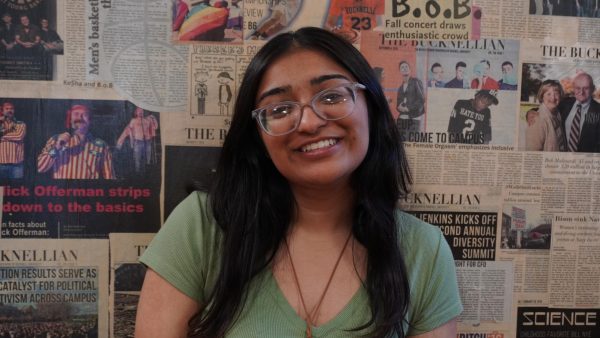I’ve been fortunate to meet some of my best friends at Bucknell. I’ve been able to establish meaningful connections and friendships with individuals from diverse backgrounds. Through involvement in clubs like Mock Trial and South Asian Students Association and serving as an RA, I’ve come to appreciate the value of stepping out of one’s comfort zone and engaging with new people. I’ve made actual friends I see regularly just by taking a moment to greet people and make conversation. When reflecting on these positive experiences, I can’t help but note a concerning trend of closed-off, cliquish behavior on campus.
From my observations, I think that oftentimes, people tend to stick to the friends and people they’ve already met. You know those movies and shows from the 2000s and 2010s we watched growing up? Like “Glee,” “Mean Girls” or “Clueless”? Our generation moved past the idea of these sorts of cliques, but at the same time, the phenomenon just evolved. Whether it’s freshmen bonding with hall mates, Greek Life circles, or people from almost the exact same background as you, the tendency to stay within familiar circles is evident. I’ve even heard of some people really only talking to others in the same college or major as them (Cough, cough – engineering and management students). It’s one thing to be an introvert, but it’s another thing to deliberately stick to the same few people continuously.
Something that is probably a bit more sensitive to say, but I really do believe should be said is the racial and socioeconomic aspects of the issue. I personally love having friends and connections with people from all different backgrounds and parts of the world. But the truth is, a lot of people here don’t really expand out of their groups at all. And I don’t want to attribute that to some statistic pointing to how the minority population here is overshadowed by students from predominantly White and/or upper-class backgrounds. We still have a substantial community of students of color on campus.
It often starts right from orientation week for many of us. I’ve seen countless friends go through the same ordeal of feeling somewhat isolated in their predominantly White first-year halls, only to find a sense of belonging and connection after branching out after O-week. They feel ignored and unacknowledged. But it really shouldn’t be like that, should it? Just saying something, being inclusive, can make a significant difference in creating a more welcoming environment for all. You never truly know what common ground you might share with someone from a different racial or socioeconomic background until you give it a chance.
In high school, forming friendships often occurred naturally within our classes, but in college, this dynamic seems less common. Classes can feel awkward when you’re surrounded by unfamiliar faces, a sentiment shared by many. While lecture style classes may explain some of this, it still strikes me as odd at times. I appreciate the professors who facilitate connections among students, but there’s definitely room for improvement. As a community, we could make a huge effort to be more welcoming and initiate conversations more frequently.
Picture this: you’re in a club or academic setting talking to people you already know, but you clearly see that there’s other people present who aren’t really being interacted with. In that moment, a simple gesture—a genuine hello or a nod of acknowledgment—can make all the difference. Actively recognizing those around us can help ensure that no one feels invisible or overlooked. All I’m suggesting is that we take conscious steps to extend inclusivity and ensure everyone feels valued and included in our interactions.
The tendency to remain within our own circles, combined with the competitiveness and academic pressures of college can create a challenging environment. Bucknell’s relatively small student population and emphasis on collaboration offers an opportunity for change. Stepping out of our comfort zones to engage with others could significantly improve our campus atmosphere. I encourage you to connect with those you don’t usually interact with. College can be overwhelming, but growth lies beyond our comfort zones.




















